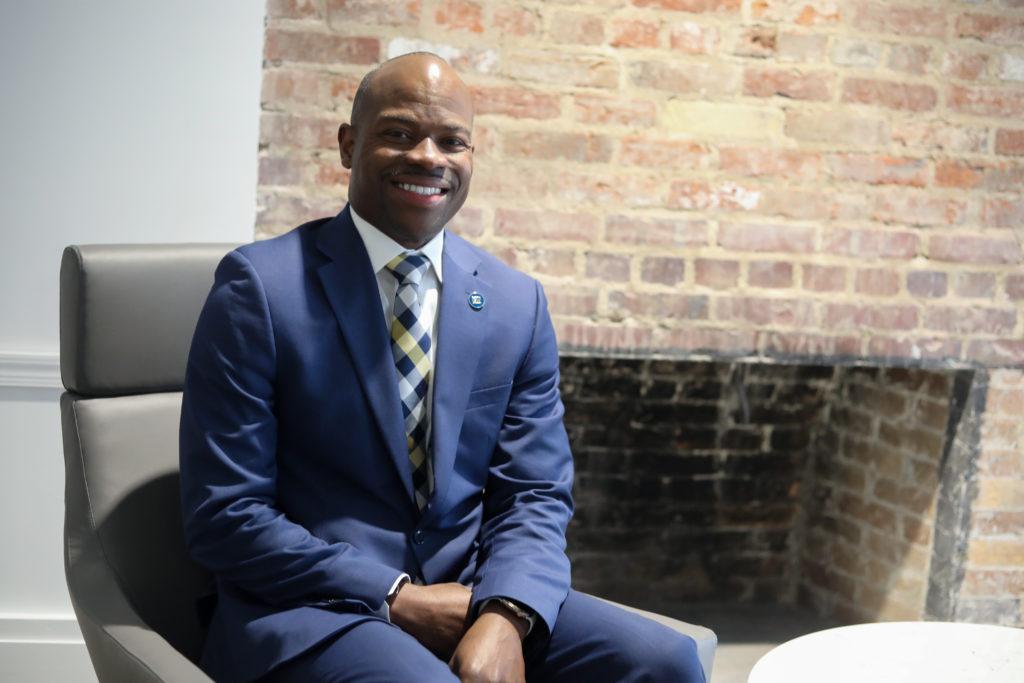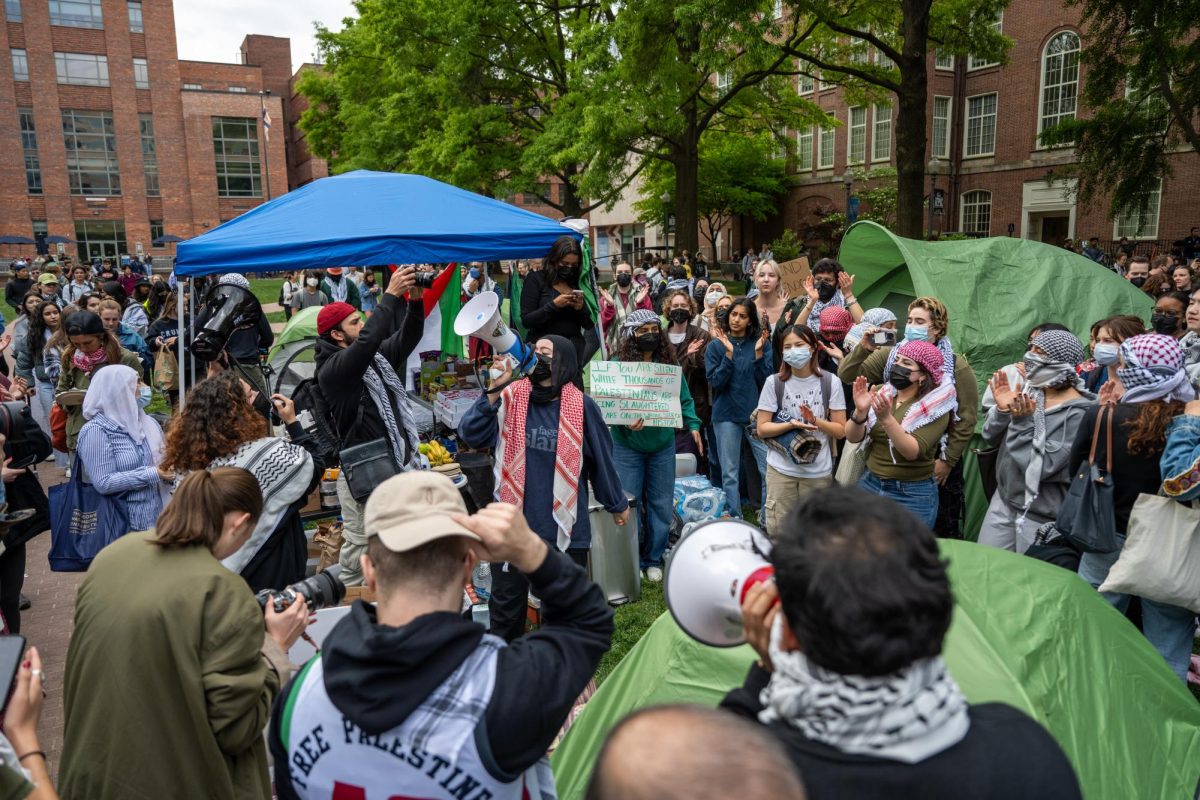After serving as GW’s provost for one year, Brian Blake said he plans to continue to work on improving the University’s standing despite the COVID-19 pandemic.
Officials announced last October that Blake would take over after then-Provost Forrest Maltzman stepped down. Notwithstanding the pandemic, Blake said he has been able to implement new academic programs and is working to gather more feedback from students and faculty moving forward.
“I’m actually quite honored to have this role at such an institution,” Blake said.
Bolstering academic programs
Blake said that one of his goals as provost was to work closely with deans to implement new academic programs and improve GW’s academic offerings.
He said in the past year he has worked with Anuj Mehrotra, the dean of the School of Business, to overhaul the business school’s Master of Business Administration program by expanding student engagement efforts, program curriculum, career services and experiential learning.
Blake said he has also worked to implement a new Ph.D. program in global health and another in biostatistics in the Milken Institute School of Public Health, which he said is “really important” during the pandemic.
He also oversaw the start of the development of an academic master plan, which he announced would be paused earlier this month in light of “faculty fatigue” during the pandemic.
He said he also oversaw the implementation of the flex-start policies that officials announced for graduate students in the School of Engineering and Applied Science and Elliott School of International Affairs in April and May, respectively, to begin their programs online.
Tackling the COVID-19 pandemic
One of Blake’s major tasks was to oversee the development of University President Thomas LeBlanc’s strategic plan, but officials needed to pause the initiative and address the COVID-19 pandemic. Blake added that without a strategic plan, his work with deans has become “spotty.”
Since the health crisis hit, he altered several of his other goals. He said one “real success” of his first year was working with the Faculty Senate, Student Association, deans and faculty to implement a Pass/No Pass policy for the past two semesters.
Officials said in an email announcing the policy this semester that Blake will partner with SA leaders and the senate to help determine whether officials should implement the pass/fail policy again next academic year.
“As a provost and certainly as a president, what you find out is that it’s hard to be too visionary because people will immediately want to know details, and it’s hard to be too detailed because people will say, ‘I didn’t have any involvement,’” he said.
He said because of the pandemic, he hasn’t been able to work on as many academic initiatives, with the exception of a few like a research partnership between the Black Student Union, Nashman Center for Civic Engagement and Public Service, sociology department and the Metropolitan Police Department. He said the initiatives that top officials have been leading this year have largely been related to the pandemic, like the COVID-19 testing facility that officials opened in April.
“When I look back, the types of things that we actually got to work for were kind of all pandemic-related,” Blake said.
Garnering feedback, looking ahead
Blake said he’s worked to meet with various department heads, program leaders and student groups online to garner feedback about his performance. He said he’s learned about how communication with the deans, students, faculty and Faculty Senate is “important” because it is easy to misrepresent information.
He added that he recently approached two students to start an advisory committee for the provost’s office, but the project is held up because officials are “struggling to get things established” during the pandemic.
“I met with every department head in Columbian College, I met with every program in the College of Professional Studies, one-on-one,” Blake said. “I think I’ve been to town halls multiple times at every school through a certain period of time.”
Blake said going forward after the pandemic, officials will need to form a plan to evaluate and “think introspectively” about GW’s academic and co-curricular offerings.
He said he also hopes to be able to take advantage of what officials have learned throughout the pandemic like the increased flexibility of the academic calendar, the ability to offer telehealth services instead of strictly in-person services and asynchronous learning.
“Interactions with students doesn’t mean we’re always constrained with face-to-face,” he said. “Now it might be a combination of face-to-face with interactions outside of the classroom as well as for the more virtual WebEx types of things.”







